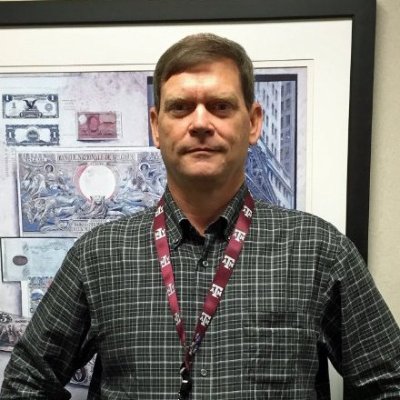
Instead of switching jobs to climb the corporate ladder, Keith Domingue has kept the same job at First Community Credit Union ($1.2B, Houston, TX) and let the ladder do the work.
FCCU has grown from $160 million in assets in 1995, when Domingue started, to $1.2 billion today. Likewise, Domingue’s role has expanded and his title has grown from vice president to senior vice president to executive vice president and, now, chief financial officer.
“That’s what happens when you stay at the same place for 21 years,” Domingue says. “Most of our growth has been organic, and if you grow at 8% to 10% a year, you eventually get to be $1.2 billion.”
Domingue, a CPA and Texas AM University grad with a master’s in accounting from the University of Houston, got his first taste of leadership in the U.S. Army as an armor officer of an Abrams tank, though he’s quick to point out that his tour of duty was during peacetime.
After military service, he spent two years as staff auditor at the Texas Credit Union League, before landing at FCCU. Today, when he’s not managing the credit union’s finances, he’s caring for 45 cows and calves at his ranch outside of Houston.
Here are his thoughts on leadership.
On knowing when to follow orders …
Back when I was in the Cadets in college, one of my officers asked me, Should you question my orders? It threw me for a loop because we’re all taught to do what we’re told. But the more I thought about it, the more I realized I do need to question what people ask me to do.
You have good orders and you have bad orders. I’ve learned a lot from my mistakes and other people’s mistakes over the years, so I’m attempting not to re-create them.
On working with fellow leaders …
We all have differences, and we don’t always agree, but we don’t we don’t take it to heart when we don’t. We all have same goal in mind, which is the credit union.
We’ve always been willing to grow and change. We were one of the first credit unions to go community, and we were one of the first to start indirect lending.
Sometime you make mistakes when you want to be in front, but what sets us apart is we’re willing to grow as the environment grows.
On greatest accomplishments …
Other than my longevity here, I’d say my employees are one of my greater accomplishments. Being able to put together a good staff that knows their job and whom you can depend on to do their job without having to sit on their shoulders means a lot.
The fact that so many of them have been here for so long, it says they enjoy working here and we’re on the right track.
The On Leadership series from CreditUnions.com spotlights notable leaders across the credit union landscape by discovering how they joined the movement, learning what makes them tick, uncovering career lessons and successes, and seeking advice for the future of the movement. Read the whole series today.
On the regulatory environment …
Since the recession hit, it’s been regulation after regulation after regulation. The viewpoint of examiners has changed. They seem to be a little more controlling than they used to be.
It’s been regulation after regulation after regulation. I still enjoy this job, but I used to enjoy it a lot more.
They’ve backed off as the economy has improved, but we still have a lot of paperwork and many more regulations that we didn’t have to deal with before.
Our job is harder. I still enjoy this job, but I used to enjoy it a lot more than I do now.
On the industry’s future …
I think the biggest threat to the credit union industry is itself. It’s shrinking every year. Smaller credit unions are having a hard time surviving. The industry will survive, but it might not survive in the same format. We probably won’t see it in my lifetime, but at what point do we become irrelevant?
When credit unions started, our mission was to help small consumers get credit they couldn’t get elsewhere. That job was taken by the credit card industry, so credit unions had to reinvent themselves. At some point, we’ll look just like a bank, and you wonder, what is our purpose?
This interview has been edited and condensed.